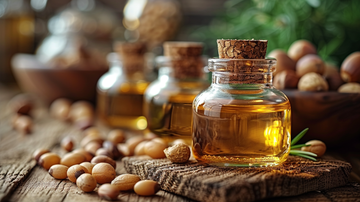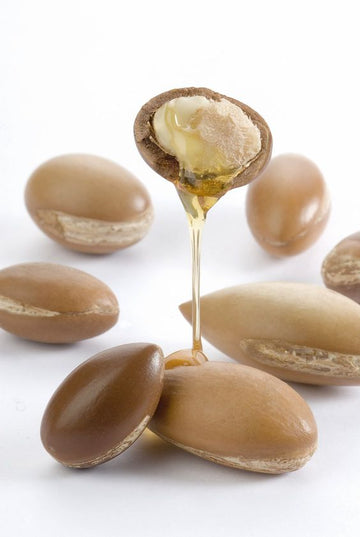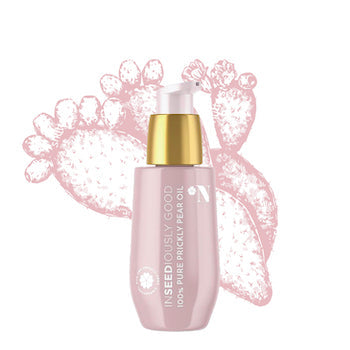If you have oily skin, the thought of adding more oil to your skincare routine might sound counterintuitive. But, believe it or not, using the right kind of oil can actually help balance your skin. Argan oil, often dubbed "liquid gold," has garnered a lot of attention for its numerous benefits. But can you really use Argan oil if you have oily skin? Let’s dive in and find out.
What is Argan Oil?
Argan oil is derived from the kernels of the Argan tree, native to Morocco. It’s been a beauty secret for centuries, valued for its nourishing properties. The extraction process involves drying, roasting, and pressing the kernels to release the oil. This labor-intensive method ensures that the oil retains its beneficial compounds.
The Chemistry of Argan Oil
Argan oil is rich in essential fatty acids, antioxidants, and vitamins. Its main components include oleic acid, linoleic acid, and vitamin E. These ingredients are known for their hydrating, anti-inflammatory, and healing properties, making Argan oil a powerhouse for skin care.
Argan Oil and Oily Skin: The Science
You might wonder how adding oil to already oily skin could be beneficial. Research suggests that Argan oil can help regulate the skin’s sebum production. Sebum is the natural oil produced by your skin, and an overproduction can lead to oily, shiny skin and clogged pores. Argan oil helps balance this by providing the necessary hydration without triggering excess sebum production.
Common Concerns About Using Oils on Oily Skin
One of the biggest fears people with oily skin have about using oils is the potential for breakouts. There’s also a concern about making the skin even oilier. However, Argan oil is non-comedogenic, meaning it won’t clog pores. Its lightweight texture ensures that it absorbs quickly, leaving your skin hydrated but not greasy.
How Argan Oil Regulates Sebum Production
Argan oil’s ability to balance sebum production lies in its unique composition. It contains linoleic acid, which can help reduce sebum levels in the skin. By providing the right amount of moisture, Argan oil prevents the skin from overcompensating by producing more oil.
Benefits of Argan Oil for Oily Skin
Using Argan oil can offer several benefits, particularly for those with oily skin:
- Hydration Without Clogging Pores: Unlike heavy creams, Argan oil provides moisture without blocking pores.
- Anti-inflammatory Properties: It can help soothe irritated skin, reducing redness and inflammation.
- Antioxidant Benefits: Vitamin E in Argan oil helps protect the skin from environmental damage and premature aging.
Argan Oil for Acne-Prone Skin
For those battling acne, Argan oil can be a gentle yet effective solution. Its anti-inflammatory properties help reduce the swelling and redness associated with acne. Moreover, its healing properties aid in the repair of acne scars and blemishes, promoting a smoother complexion.
How to Use Argan Oil if You Have Oily Skin
Applying Argan oil correctly is key to reaping its benefits. Here are some tips:
- Use Sparingly: A few drops are enough to cover your entire face.
- Apply to Damp Skin: This helps lock in moisture.
- Night Routine: Incorporate it into your nighttime skincare routine for best results.
Combining Argan Oil with Other Skincare Products
Integrating Argan oil into your existing skincare routine can be seamless. However, be cautious of combining it with other oils or products that might be too rich. Stick to gentle, non-comedogenic products to maintain balance.
DIY Argan Oil Skincare Recipes
Creating your own skincare products at home can be fun and rewarding. Here are a couple of simple recipes:
- Moisturizing Face Serum: Mix Argan oil with a few drops of tea tree oil for added acne-fighting benefits.
- Hydrating Face Mask: Combine Argan oil with honey and yogurt for a nourishing mask.
Success Stories and Testimonials
Many individuals with oily skin have shared their positive experiences with Argan oil. They’ve reported fewer breakouts, balanced skin, and an overall improvement in their complexion. Dermatologists also recommend Argan oil for its gentle and effective properties.
Potential Side Effects and Precautions
While Argan oil is generally safe for most skin types, it’s always wise to do a patch test first. Some people might experience minor irritation or allergic reactions. If you have any concerns, consult with a dermatologist before incorporating it into your routine.




